Mudlarks find 152-year-old Boat Race medal
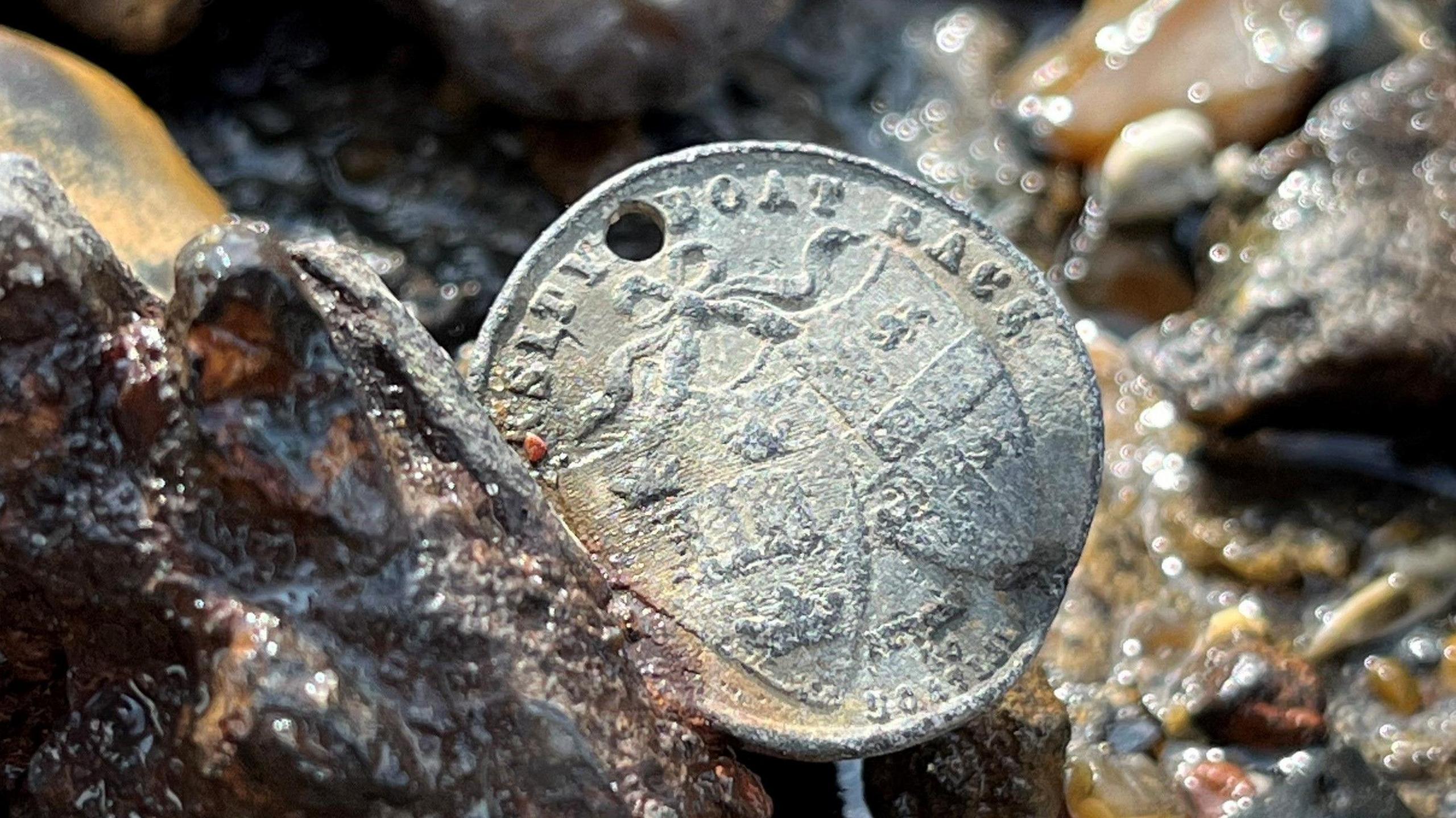
The medal was a souvenir sold to spectators
- Published
A medal thought to be a memento from the 1872 Boat Race has been found in the River Thames by a pair of mudlarks.
That year's race, described as "of the most cheerless character", was held "in the teeth of a bitter gale and snow storm" on 23 March.
Tom Chivers and Nicola White found the trinket in the Thames at Southwark, bound to a conglomerate of rusting iron and matches.
Ms White suggested the owner of the souvenir was unable to hold on to it between their chilly fingertips and allowed it to slip into the river.
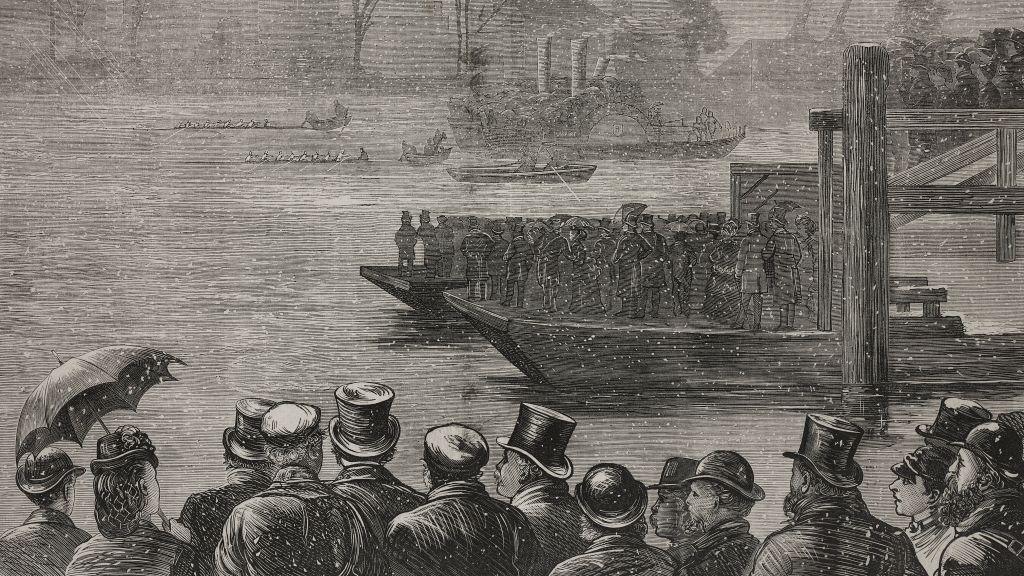
An illustration of the race shows heavy rain and poor visibility
The Boat Race sees crews from Oxford and Cambridge universities compete against each other on the Thames, with the first men's race taking place in 1829 and the women's in 1927.
The race in 1872 was conducted under horrible conditions - according to the Times, "a pitiless descent of swirling snow was literally blinding to the occupants of the steam-boats that followed the crews".
The Illustrated London News said: "Crowds failed to materialise on the handy vantage point of Hammersmith Bridge, and the whole event was dismal, partly because of the appalling weather, but also because of a certain failure of spirit all round."
It was a change from the usual - which saw the riverside throng with spectators, each sporting "their bit of deep or pale blue".
'Brutal and noble'
As described in London: A pilgrimage, by Gustave Dore and Blanchard Jerrold, published in 1872, Boat Race day was a city-wide event.
"Why are those urchins, perched up in yonder limes, at the peril of their necks, to catch a glimpse of the struggle between the Oxford and Cambridge crews, so utterly possessed with the keen spirit of the day?
"Why is the gypsy lad proud of the pale blue in his straw hat?
"Why are those groups of poor shop-men wrangling over the relative merits of the Cambridge and Oxford stroke?"
The reason, according to Dore and Jerrold, "is the combativeness which lies deep in the English nature, and which has expressed itself in brutal and in noble forms ever since we were a nation.
"It is not a love of gambling, but the hot desire to be on one side of every conflict, that leads all classes of Englishmen to the race-course.
"It is the race of life expressed in a happy, festive manner."
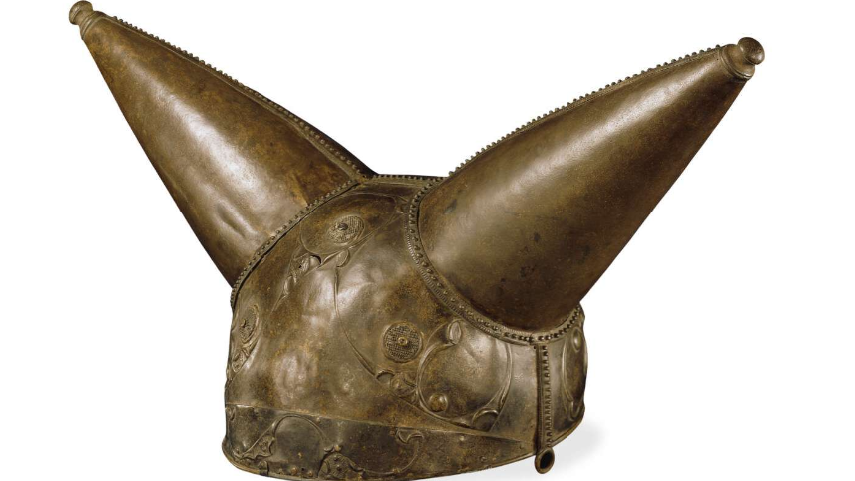
The Waterloo helmet is made from two pieces of copper alloy sheet held together by copper alloy rivets
What is mudlarking?
Mudlarking is a centuries-old London tradition, which sees people searching the riverbed for historical treasures.
The most famous finds include the Battersea shield and Waterloo helmet, both of which are held by the British Museum.
More common treasures are clay pipes, bits of tile and old coins.
Those who take part in mudlarking require a Thames foreshore permit from the Port of London Authority.
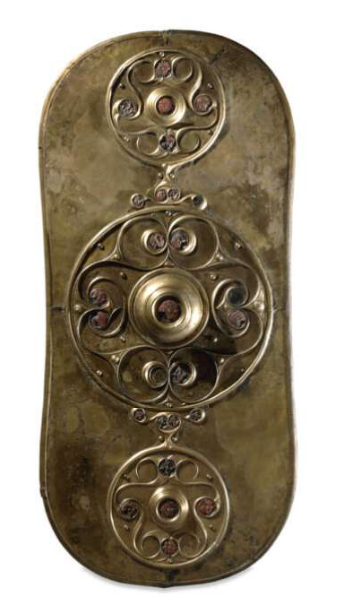
The Battersea shield is not a complete shield but the metal facing of one
The next Boat Race is on 13 April 2025, when anyone purchasing a souvenir medal is urged to grip it carefully.
However, any losses might be recovered by mudlarkers in about 2177.
Listen to the best of BBC Radio London on Sounds and follow BBC London on Facebook, external, X, external and Instagram, external. Send your story ideas to hello.bbclondon@bbc.co.uk, external
- Published16 September 2024
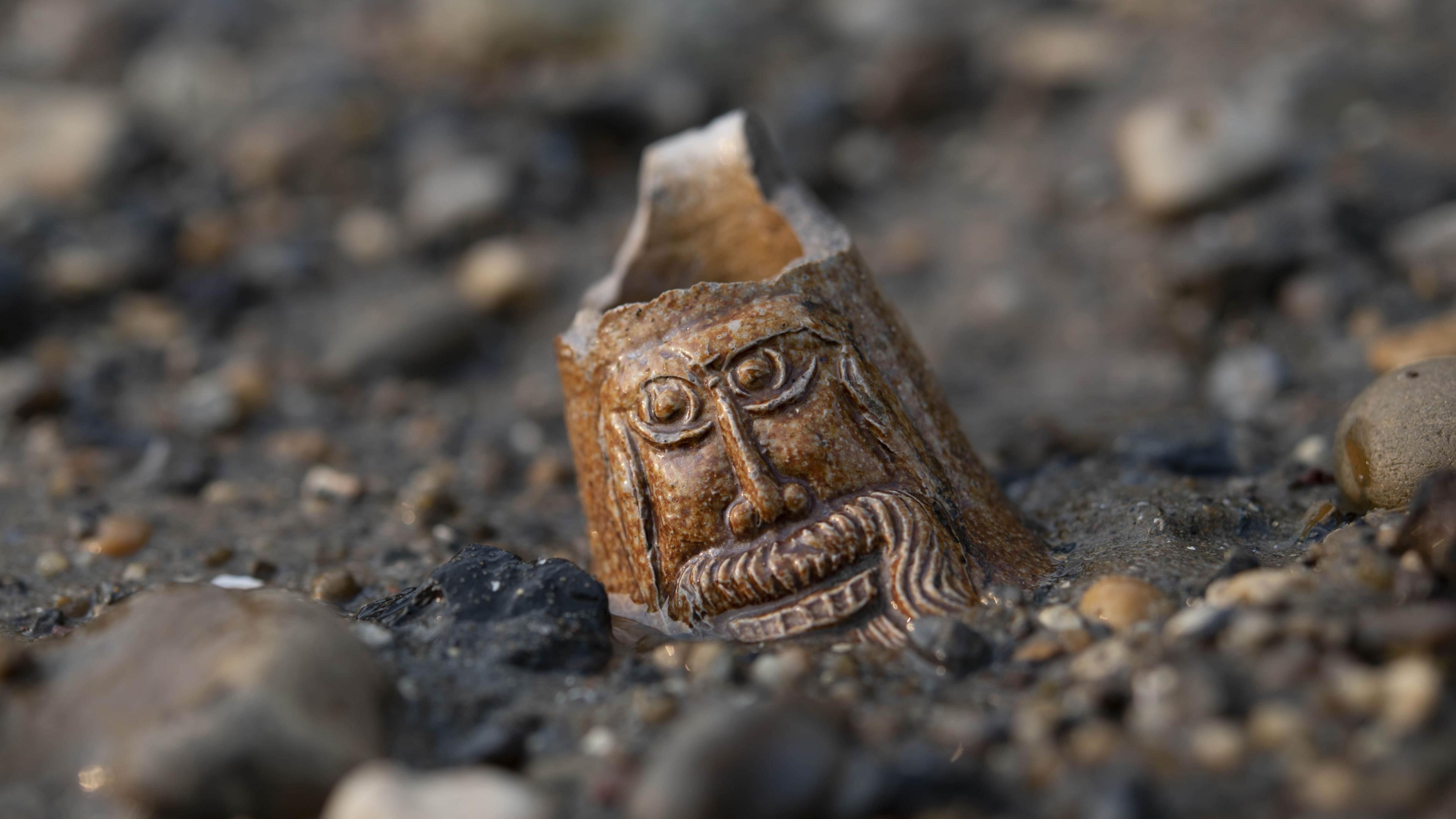
- Published9 November 2021
